SDG16: Promote peaceful and inclusive societies for sustainable development, provide access to justice for all and build effective, accountable and inclusive
Because the 2030 Agenda was designed to be integrative and universally applicable, the goals are multidimensional intertwining elements of the three main dimensions of the agenda: society, the environment, and the economy. While most of the 17 goals have a clear starting point in one of the three pillars, most goals actually embed all three dimensions amongst their targets.[1] As this toolkit demonstrates, SDG 16 is a critical enabler to achieve any other SDGs as they are impossible without the foundation of peace, justice and inclusion. This table attempts to present a framework to systematically identify and outline the embedded interlinkages between SDG 16 and the other goals in order to facilitate a better understanding to support policy coherence and forge a more integrated and strategic approach to the implementation of the SDGs.[2]
SDG interlinkages
This information summarizes the broader interlinkages between a specific SDG 16 target, and SDGs overall. This is based on the “Interlinkages with Specific SDG Targets” analysis provided in this guide.
Overview of coverage/scope of SDG targets
This column provides a general overview of the issues that could be covered under the scope of a given SDG 16 target. This information should be considered as non-exhaustive, and is not limited merely to the topics or issues that governments had intended for a target to cover. Instead, it is a suggestive list that includes a wider range of issues that are related to the agreed language of the target itself, which civil society partners could consider in their work around a specific target.
Interlinkages with specific SDG targets
In terms of the scope of SDG interlinkages, interlinkages can “refer to those between goals, between a goal and relevant targets, or between targets.” For the purposes of this chart, interlinkages “include direct relations between two targets or indirect relations that connect two targets via a third target or more intermediate ones.”[3] Analyzing interlinkages among the Goals and targets is critical to understanding the targets and maximizing SDG integration and policy coherence.
In addition to proposed interlinkages by experts within the SDG16+ Community, this chart utilizes the following resources to outline potential SDG 16 interlinkages:
IGES
This chart uses the Institute for Global Environmental Strategies (IGES) SDG Interlinkages Analysis & Visualisation Tool (V3.0) (a web-based interface for free access through the internet) to identify the interlinkages between SDG 16 and the broader 2030 Agenda.
IGES utilizes a four-step methodology to identify the linkages based on the causalities between relevant targets and then quantify the linkages:
For more information on the IGES Interlinkages Analysis, please click here.
Additionally, the SDG interlinkages provided below have also been supplemented by varying sources and civil society experts on SDG 16 issues from within the TAP Network. This list should be viewed as indicative and non-exhaustive, and additional interlinkages can and should be explored by civil society partners as needed. The description of SDG targets linked with SDG 16 targets represent a summary of the actual target provided by IGES. To compare against the actual list of the full SDG targets elaborated in the 2030 Agenda, click here.
Linkages with key international agreements
The column of international agreements referenced in this chart is a non-exhaustive list of relevant international treaties, both binding and non-binding agendas and conventions ratified at the international and/or regional level. The Danish Institute for Human Rights developed a tool and database which displays the links between the 17 SDGs and more than 200 international and regional instruments. The Human Rights Guide to the SDGs illustrates the anchorage of SDG 16 and the other goals in international and regional agreements by making concrete links between the targets and the relevant range of international and regional human rights instruments, international labour standards, and key environmental instruments.
SDG Target 16.1 – Significantly reduce all forms of violence and related death rates everywhere
SDG Interlinkages: 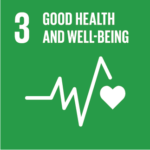
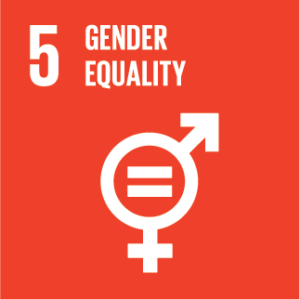
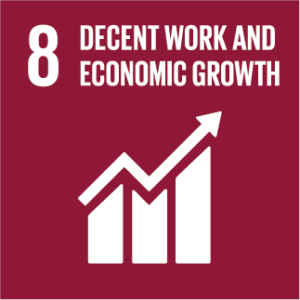
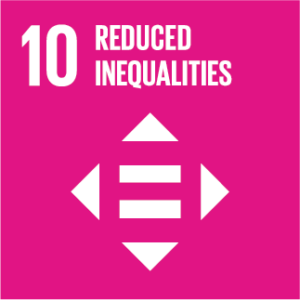
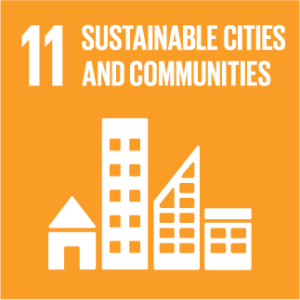
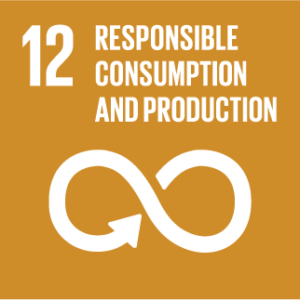
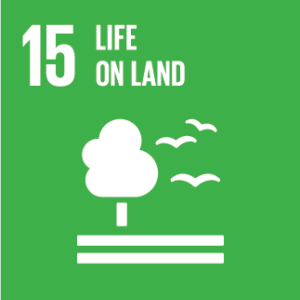
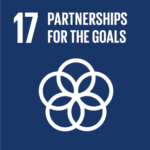
Coverage or scope of target[1]
This target addresses reducing all forms of violence and related deaths including:
Interlinkages with other SDG targets [1]
Linkages with key international agreements
SDG Target 16.2 – End abuse, exploitation, trafficking and all forms of violence against and torture of children
SDG Interlinkages: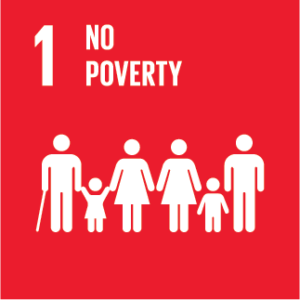
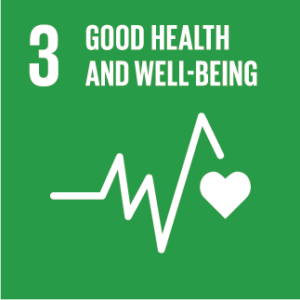
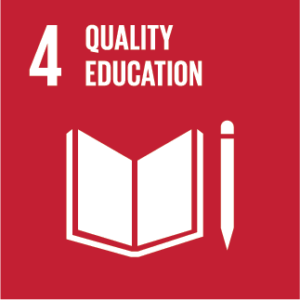


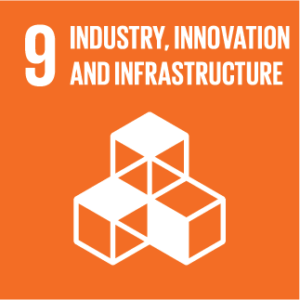


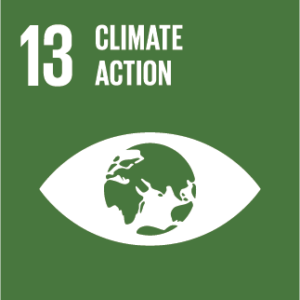
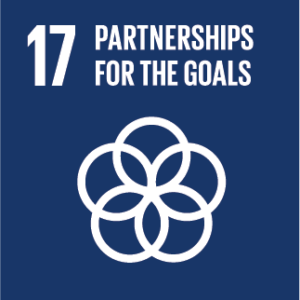
This target addresses ending all forms of violence against children in all settings – home, school, the community, care institutions and online – including:
Interlinkages with other SDG targets
● 1.1 End extreme poverty
● 1.2 Halve national poverty
● 1.3 Implement social protection systems to the poor
● 1.5 Build resilience of the poor to climate and other disasters
● 3.4 Reduce premature mortality from non-communicable diseases
● 4.1 All for free primary and secondary education
● 4.2 Access to early childhood care and education for all
● 4.5 Eliminate gender disparities in all levels of education
● 4.b Expand scholarships for developing countries
● 5.1 End gender discrimination
● 5.2 Eliminate women violence
● 5.3 Eliminate forced marriage
● 5.6 Universal access to reproductive health care services
● 8.3 Create decent work
● 8.5 Decent work for all
● 8.6 Improve youth employment
● 8.7 Stop child labour
● 8.8 Protect labour rights
● 9.c Universal and affordable access to ICT
● 10.2 Promote social, economic and political inclusion of all
● 10.3 Eliminate discrimination
● 10.4 Policy for greater equality
● 10.7 Improve equality of migrants
● 10.c Reduce the transaction costs of migrant remittances
● 11.1 Universal access to urban housing and basic services
● 11.7 Universal access to green and public spaces
● 12.6 Promote social and environmental reporting by companies
● 13.1 Strengthen resilience to climate change
● 13.3 Raise awareness on mitigation and adaptation
● 16.1 Reduce violence
● 16.3 Promote the rule of law for justice
● 16.6 Develop accountable institutions
● 16.7 Enhance inclusive decision-making
Linkages with key international agreements
SDG Target 16.3 – Promote the rule of law at the national and international levels and ensure equal access to justice for all
SDG Interlinkages:


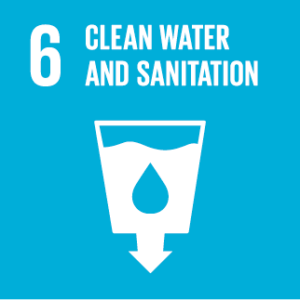
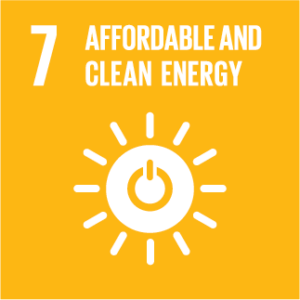






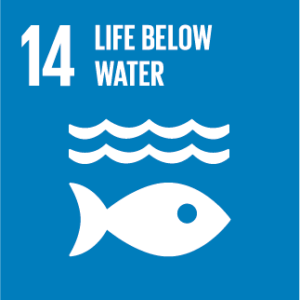


This wide-ranging target addresses topics around improving meaningful access to justice, and promoting and protecting the rule of law at all levels, including:
This target is also directly underpinned by SDG targets 16.a and 16.b, which focus on strengthening law-and-justice institutions and addressing discrimination
Interlinkages with other SDG targets
● 1.b Mobilize resources for ending poverty
● 3.4 Reduce premature mortality from non-communicable diseases
● 3.6 Halve traffic deaths
● 3.8 Universal health coverage
● 4.5 Ensure equal access to education
● 5.1 End gender discrimination
● 5.2 Eliminate women violence
● 5.3 Eliminate forced marriage
● 5.5 Enhance women’s participation in decision-making and public life
● 5.c Strengthen policies for gender equality
● 6.1 Universal access to safe drinking water
● 6.2 Universal access to sanitation and hygiene
● 6.3 Improve water quality
● 6.4 Increase water-use efficiency
● 6.6 Protect water-related ecosystems
● 6.a Enhance international cooperation on water and sanitation
● 6.b Strengthen local community participation in water management
● 7.1 Universal access to energy services
● 8.3 Create decent work
● 8.7 Stop child labour
● 8.8 Protect labour rights
● 8.10 Strengthen financial institutions
● 8.a Increase Aid for Trade
● 8.b Implement the ILO Global Jobs Pact
● 9.3 Increase access to financial services
● 10.2 Promote social, economic and political inclusion of all
● 10.3 Eliminate discrimination
● 10.4 Policy for greater equality
● 10.5 Strengthen the enforcement of regulations
● 10.6 Inclusion of developing countries in global decision making
● 10.7 Improve equality of migrants
● 10.a Special trade treatment for LDCs
● 10.b Encourage ODA to LDCs
● 10.c Reduce the transaction costs of migrant remittances
● 11.1 Equal access to adequate housing
● 11.2 Universal access to sustainable transport systems
● 11.a Strengthen development planning for sustainable cities
● 12.c Remove market distortions
● 13.a Finance developing countries for mitigation
● 14.4 End overfishing
● 14.5 Conserve 10 percent of coastal areas
● 14.6 Eliminate harmful fisheries subsidies
● 14.c Implementation of international law on sustainable oceans
● 15.2 Sustainable management of forests
● 15.7 End trafficking of protected species
● 15.8 Prevent the impact of invasive alien species
● 17.9 International support for sustainable development capacity building in developing countries
● 17.15 Respect country’s policy space
Linkages with key international agreements
SDG Target 16.4 – By 2030, significantly reduce illicit financial and arms flows, strengthen the recovery and return of stolen assets and combat all forms of organized crime
SDG Interlinkages:



This target aims to address issues of organized crime and illicit financial and arms flows, including:
Interlinkages with other SDG targets
● 3.4 Reduce premature mortality from non-communicable diseases
● 3.5 Prevent drug abuse
● 8.3 Create decent work
● 10.5 Strengthen the enforcement of regulations
● 16.1 Reduce all forms of violence and related death rates
● 16.5 Substantially reduce corruption and bribery in all their forms
● 17.1 Capacity building for tax collection in developing countries
● 17.13 Enhance global macroeconomic stability
Linkages with key international agreements
SDG Target 16.5 – Substantially reduce corruption and bribery in all their forms
SDG Interlinkages:
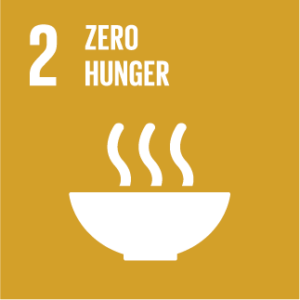














This target addresses corruption and bribery through prevention and enforcement at the national and transnational, international levels, including:
Interlinkages with other SDG targets
● 1.1 End extreme poverty
● 1.2 Halve national poverty
● 1.3 Implement social protection systems to the poor
● 1.4 Full access to basic services and economic resources
● 1.a Create pro-poor policy frameworks
● 1.b Mobilize resources for ending poverty
● 2.1 End hunger
● 2.2 End malnutrition
● 2.3 Double agriculture productivity
● 2.5 Maintain agricultural genetic diversity
● 2.a Investment in agriculture extension programs
● 3.7 Universal access to reproductive health care services
● 3.8 Universal health coverage
● 3.b Access to essential medicines
● 4.a Improve education facilities
● 4.b Expand scholarships for developing countries
● 5.2 Eliminate women violence
● 5.3 Eliminate forced marriage
● 5.6 Universal access to reproductive health care services
● 5.a Women equal rights to economic resources
● 6.1 Universal access to safe drinking water
● 6.2 Universal access to sanitation and hygiene
● 6.3 Improve water quality
● 6.4 Increase water-use efficiency
● 6.5 Implement integrated water resources management
● 6.6 Protect water-related ecosystems
● 6.a Enhance international cooperation on water and sanitation
● 6.b Strengthen local community participation in water management
● 7.b Expand energy infrastructure
● 8.1 Sustain inclusive economic growth
● 8.2 Improve economic productivity
● 8.3 Create decent work
● 8.4 Improve resource efficiency
● 8.5 Decent work for all
● 8.6 Improve youth employment
● 8.8 Protect labour rights
● 8.10 Strengthen financial institutions
● 8.a Increase Aid for Trade
● 9.1 Develop resilient infrastructure
● 9.2 Promote inclusive and sustainable industrialization
● 9.3 Increase access to financial services
● 9.4 Resource-efficient and clean technology-based industrial retrofit
● 9.a Enhance international aid to build resilient infrastructure
● 9.b Policy support for industrial value addition
● 10.1 Income growth of bottom 40% population
● 10.2 Promote social, economic and political inclusion of all
● 10.3 Eliminate discrimination
● 10.5 Strengthen the enforcement of regulations
● 10.7 Improve equality of migrants
● 10.b Encourage ODA to LDCs
● 11.1 Universal access to urban housing and basic services
● 11.2 Universal access to sustainable transport systems
● 11.3 Enhance inclusive and sustainable urbanization
● 11.5 Reduce losses from disasters
● 11.6 Reduce urban environmental impacts
● 11.7 Universal access to green and public spaces
● 11.a Strengthen development planning for sustainable cities
● 11.b Integrated policy for disaster risk management
● 12.2 Sustainable resource use
● 12.3 Halve food waste and loss
● 12.4 Sound management of chemicals and wastes
● 12.5 Reduce waste generation
● 12.7 Promote public green procurement
● 12.c Remove market distortions
● 13.1 Strengthen resilience to climate change
● 14.2 Sustainable manage marine ecosystems
● 14.4 End overfishing
● 14.6 Eliminate harmful fisheries subsidies
● 14.b Access to marine resources to small-scale artisanal fishers
● 15.1 Sustainable use of terrestrial and inland freshwater
● 15.2 Sustainable management of forests
● 15.3 Combat desertification and soil degradation
● 15.4 Conserve mountain ecosystems
● 15.5 Protect natural habitat and biodiversity
● 15.6 Fair use of genetic resources
● 15.7 End trafficking of protected species
● 15.8 Prevent the impact of invasive alien species
● 17.1 Capacity building for tax collection in developing countries
● 17.3 Mobilize financial resources for developing countries
● 17.5 Promote investment in LDCs
● 17.13 Enhance global macroeconomic stability
● 17.14 Enhance policy coherence
● 17.16 Enhance global partnership
● 17.17 Promote multistakeholder partnerships
Linkages with key international agreements
SDG Target 16.6 – Develop effective, accountable and transparent institutions at all levels
SDG Interlinkages:















This target underpins the entire 2030 Agenda, as it calls for building effective public institutions – particularly as it relates to the delivery of basic goods and services – and for ensuring that transparency and accountability are built into institutions at all levels. This target includes:
Interlinkages with other SDG targets
● 1.1 End extreme poverty
● 1.2 Halve national poverty
● 1.3 Implement social protection systems to the poor
● 1.4 Full access to basic services and economic resources
● 1.5 Build resilience of the poor to climate and other disasters
● 1.a Create pro-poor policy frameworks
● 1.b Mobilize resources for ending poverty
● 2.1 End hunger
● 2.2 End malnutrition
● 2.3 Double agriculture productivity
● 2.4 Build sustainable food production systems
● 2.5 Maintain agricultural genetic diversity
● 2.a Investment in agriculture extension programs
● 2.c Well functioned of food markets
● 3.2 End preventable young child deaths
● 3.3 End epidemics of diseases
● 3.5 Prevent drug abuse
● 3.6 Halve traffic deaths
● 3.7 Universal access to reproductive health care services
● 3.8 Universal health coverage
● 3.9 Reduce deaths/illnesses from pollution
● 3.b Access to essential medicines
● 3.c Increase health workforce
● 3.d Improve health risk management
● 4.1 All for free primary and secondary education
● 4.2 Access to early childhood care and education for all
● 4.3 Access to technical and tertiary education for all
● 4.4 Increase skilled workers for decent jobs
● 4.5 Eliminate gender disparities in all levels of education
● 4.6 All achieve literacy and numeracy
● 4.7 Acquire knowledge needed for sustainable development
● 4.a Improve education facilities
● 4.b Expand scholarships for developing countries
● 4.c Enhance teaching capacity
● 5.1 End gender discrimination
● 5.2 Eliminate women violence
● 5.3 Eliminate forced marriage
● 5.4 Value unpaid domestic work
● 5.5 Enhance women’s participation in decision-making and public life
● 5.6 Universal access to reproductive health care services
● 5.a Women equal rights to economic resources
● 5.c Strengthen policies for gender equality
● 6.1 Universal access to safe drinking water
● 6.2 Universal access to sanitation and hygiene
● 6.3 Improve water quality
● 6.4 Increase water-use efficiency
● 6.5 Implement integrated water resources management
● 6.6 Protect water-related ecosystems
● 6.a Enhance international cooperation on water and sanitation
● 6.b Strengthen local community participation in water management
● 7.1 Universal access to energy
● 7.2 Increase renewable energy
● 7.3 Double energy efficiency
● 7.a Enhance international cooperation on clean energy R&D
● 7.b Expand energy infrastructure
● 8.1 Sustain inclusive economic growth
● 8.2 Improve economic productivity
● 8.3 Create decent work
● 8.4 Improve resource efficiency
● 8.5 Decent work for all
● 8.6 Improve youth employment
● 8.7 Stop child labour
● 8.8 Protect labour rights
● 8.10 Strengthen financial institutions
● 8.a Increase Aid for Trade
● 8.b Implement the ILO Global Jobs Pact
● 9.1 Develop resilient infrastructure
● 9.2 Promote inclusive and sustainable industrialization
● 9.3 Increase access to financial services
● 9.4 Resource-efficient and clean technology-based industrial retrofit
● 9.5 Enhance R&D for industrial sectors
● 9.a Enhance international aid to build resilient infrastructure
● 9.b Policy support for industrial value addition
● 10.1 Income growth of bottom 40% population
● 10.2 Promote social, economic and political inclusion of all
● 10.3 Eliminate discrimination
● 10.4 Policy for greater equality
● 10.5 Strengthen the enforcement of regulations
● 10.7 Improve equality of migrants
● 10.c Reduce the transaction costs of migrant remittances
● 11.1 Universal access to urban housing and basic services
● 11.2 Universal access to sustainable transport systems
● 11.3 Enhance inclusive and sustainable urbanization
● 11.4 Protect cultural and natural heritage
● 11.5 Reduce losses from disasters
● 11.6 Reduce urban environmental impacts
● 11.7 Universal access to green and public spaces
● 11.a Strengthen development planning for sustainable cities
● 11.b Integrated policy for disaster risk management
● 11.c Building resilient buildings for LDCs
● 12.1 Implement 10YFP
● 12.2 Sustainable resource use
● 12.3 Halve food waste and loss
● 12.4 Sound management of chemicals and wastes
● 12.5 Reduce waste generation
● 12.6 Promote social and environmental reporting by companies
● 12.7 Promote public green procurement
● 12.8 Enhance awareness of sustainable lifestyles
● 12.a Support R&D capacity of developing countries for SCP
● 12.c Remove market distortions
● 13.1 Strengthen resilience to climate change
● 13.2 Integrate climate change measures into national policies
● 13.3 Raise awareness on mitigation and adaptation
● 13.b Enhance capacity for climate change planning
● 14.1 Reduce marine pollution
● 14.2 Sustainable manage marine ecosystems
● 14.3 Address ocean acidification
● 14.4 End overfishing
● 14.5 Conserve 10 percent of coastal areas
● 14.6 Eliminate harmful fisheries subsidies
● 14.a Increase R&D on marine technology
● 14.b Access to marine resources to small-scale artisanal fishers
● 14.c Implementation of international law on sustainable oceans
● 15.1 Sustainable use of terrestrial and inland freshwater
● 15.2 Sustainable management of forests
● 15.3 Combat desertification and soil degradation
● 15.4 Conserve mountain ecosystems
● 15.5 Protect natural habitat and biodiversity
● 15.6 Fair use of genetic resources
● 15.7 End trafficking of protected species
● 15.8 Prevent the impact of invasive alien species
● 15.9 Valuation of ecosystems and biodiversity
● 15.a Mobilize financial resources for sustainable use of ecosystems
● 15.b Finance sustainable forest management in developing countries
● 15.c Global support to combat trafficking of protected species
● 17.1 Capacity building for tax collection in developing countries
● 17.2 Implement ODA commitments
● 17.8 Enhance ICT in LDCs
● 17.9 International support for sustainable development capacity building in developing countries
● 17.13 Enhance global macroeconomic stability
● 17.14 Enhance policy coherence
● 17.16 Enhance global partnership
● 17.17 Promote multistakeholder partnerships
● 17.18 Capacity building for developing countries in data availability
● 17.19 Measure sustainable development
Linkages with key international agreements
SDG Target 16.7 – Ensure responsive, inclusive, participatory and representative decision-making at all levels
SDG Interlinkages:














This target also underpins the entire 2030 Agenda, and is based on the fundamental principle of leaving no one behind. This target calls for “people-centered” governance and inclusive decision-making processes, including
Interlinkages with other SDG targets
● 1.2 Halve national poverty
● 1.3 Implement social protection systems to the poor
● 1.4 Full access to basic services and economic resources
● 1.5 Build resilience of the poor to climate and other disasters
● 1.b Mobilize resources for ending poverty
● 2.3 Double agriculture productivity
● 2.5 Maintain agricultural genetic diversity
● 3.4 Reduce premature mortality from non-communicable diseases
● 3.7 Universal access to reproductive health care services
● 3.8 Universal health coverage
● 3.9 Reduce deaths/illnesses from pollution
● 3.b Access to essential medicines
● 3.d Improve health risk management
● 4.3 Access to technical and tertiary education for all
● 4.5 Eliminate gender disparities in all levels of education
● 4.7 Acquire knowledge needed for sustainable development
● 5.1 End gender discrimination
● 5.5 Enhance women’s participation in decision-making and public life
● 5.a Women equal rights to economic resources
● 5.b Use of technologies for women empowerment
● 5.c Strengthen policies for gender equality
● 6.1 Universal access to safe drinking water
● 6.4 Increase water-use efficiency
● 6.5 Implement integrated water resources management
● 6.6 Protect water-related ecosystems
● 6.b Strengthen local community participation in water management
● 8.2 Improve economic productivity
● 8.3 Create decent work
● 8.4 Improve resource efficiency
● 8.5 Decent work for all
● 8.6 Improve youth employment
● 8.7 Stop child labour
● 8.8 Protect labour rights
● 8.10 Strengthen financial institutions
● 8.b Implement the ILO Global Jobs Pact
● 9.1 Develop resilient infrastructure
● 9.3 Increase access to financial services
● 9.4 Resource-efficient and clean technology-based industrial retrofit
● 9.a Enhance international aid to build resilient infrastructure
● 9.b Policy support for industrial value addition
● 10.1 Income growth of bottom 40% population
● 10.2 Promote social, economic and political inclusion of all
● 10.3 Eliminate discrimination
● 10.4 Policy for greater equality
● 10.6 Inclusion of developing countries in global decision making
● 10.7 Improve equality of migrants
● 11.1 Universal access to urban housing and basic services
● 11.2 Universal access to sustainable transport systems
● 11.3 Enhance inclusive and sustainable urbanization
● 11.4 Protect cultural and natural heritage
● 11.5 Reduce losses from disasters
● 11.6 Reduce urban environmental impacts
● 11.a Strengthen development planning for sustainable cities
● 11.b Integrated policy for disaster risk management
● 12.1 Implement 10YFP
● 12.2 Sustainable resource use
● 12.4 Sound management of chemicals and wastes
● 12.5 Reduce waste generation
● 12.6 Promote social and environmental reporting by companies
● 12.8 Enhance awareness of sustainable lifestyles
● 12.c Remove market distortions
● 13.1 Strengthen resilience to climate change
● 13.2 Integrate climate change measures into national policies
● 13.3 Raise awareness on mitigation and adaptation
● 13.b Enhance capacity for climate change planning
● 14.1 Reduce marine pollution
● 14.2 Sustainable manage marine ecosystems
● 14.3 Address ocean acidification
● 14.5 Conserve 10 percent of coastal areas
● 14.6 Eliminate harmful fisheries subsidies
● 14.b Access to marine resources to small-scale artisanal fishers
● 15.1 Sustainable use of terrestrial and inland freshwater
● 15.2 Sustainable management of forests
● 15.3 Combat desertification and soil degradation
● 15.4 Conserve mountain ecosystems
● 15.5 Protect natural habitat and biodiversity
● 15.6 Fair use of genetic resources
● 15.9 Valuation of ecosystems and biodiversity
● 17.1 Capacity building for tax collection in developing countries
● 17.9 International support for sustainable development capacity building in developing countries
● 17.14 Enhance policy coherence
● 17.16 Enhance global partnership
● 17.17 Promote multistakeholder partnerships
● 17.18 Capacity building for developing countries in data availability
● 17.19 Measure sustainable development
Linkages with key international agreements
SDG Target 16.8 – Broaden and strengthen the participation of developing countries in the institutions of global governance
SDG Interlinkages:














This target calls for more equitable participation of developing (non-OECD) countries within global institutions and processes, including:
Interlinkages with other SDG targets
● 1.5 Build resilience of the poor to climate and other disasters
● 1.a Create pro-poor policy frameworks
● 1.b Mobilize resources for ending poverty
● 2.5 Maintain agricultural genetic diversity
● 2.a Investment in agriculture extension programs
● 2.b Remove agricultural trade distortions
● 3.3 End epidemics of diseases
● 3.5 Prevent drug abuse
● 3.a Implement tobacco control convention
● 3.b Access to essential medicines
● 3.d Improve health risk management
● 4.b Expand scholarships for developing countries
● 6.5 Implement integrated water resources management
● 6.a Enhance international cooperation on water and sanitation
● 7.b Expand energy infrastructure
● 8.4 Improve resource efficiency
● 8.a Increase Aid for Trade
● 8.b Implement the ILO Global Jobs Pact
● 9.a Enhance international aid to build resilient infrastructure
● 10.5 Strengthen the enforcement of regulations
● 10.6 Inclusion of developing countries in global decision making
● 10.7 Improve equality of migrants
● 10.a Special trade treatment for LDCs
● 10.b Encourage ODA to LDCs
● 11.4 Protect cultural and natural heritage
● 11.5 Reduce losses from disasters
● 11.a Strengthen development planning for sustainable cities
● 11.c Building resilient buildings for LDCs
● 12.2 Sustainable resource use
● 12.4 Sound management of chemicals and wastes
● 12.5 Reduce waste generation
● 12.a Support R&D capacity of developing countries for SCP
● 12.c Remove market distortions
● 13.1 Strengthen resilience to climate change
● 13.2 Integrate climate change measures into national policies
● 13.a Finance developing countries for mitigation
● 13.b Enhance capacity for climate change planning
● 14.1 Reduce marine pollution
● 14.4 End overfishing
● 14.6 Eliminate harmful fisheries subsidies
● 14.7 Increase the economic benefits of LDCs from sustainable use of marine resources
● 14.a Increase R&D on marine technology
● 14.c Implementation of international law on sustainable oceans
● 15.2 Sustainable management of forests
● 15.6 Fair use of genetic resources
● 15.7 End trafficking of protected species
● 15.8 Prevent the impact of invasive alien species
● 15.a Mobilize financial resources for sustainable use of ecosystems
● 15.b Finance sustainable forest management in developing countries
● 15.c Global support to combat trafficking of protected species
● 17.1 Capacity building for tax collection in developing countries
● 17.2 Implement ODA commitments
● 17.3 Mobilize financial resources for developing countries
● 17.4 Attain long-term debt sustainability for developing countries
● 17.5 Promote investment in LDCs
● 17.6 International cooperation on science and technology
● 17.7 Promote environmental technology transfer to developing countries
● 17.8 Enhance ICT in LDCs
● 17.9 International support for sustainable development capacity building in developing countries
● 17.10 Promote equitable multilateral trading system under WTO
● 17.11 Increase exports from developing countries
● 17.12 Enhance market access for LDCs
● 17.13 Enhance global macroeconomic stability
● 17.14 Enhance policy coherence
● 17.15 Respect country’s policy space
● 17.16 Enhance global partnership
● 17.18Capacity building for developing countries in data availability
● 17.19 Measure sustainable development
SDG Target 16.9 – By 2030, provide legal identity for all, including birth registration
SDG Interlinkages:






This target addresses the lack of formal identity as a barrier to inclusion for vulnerable groups such as refugees, internally displaced persons, and long-term undocumented populations, including by:
Interlinkages with other SDG targets
● 1.1 End extreme poverty
● 1.2 Halve national poverty
● 1.4 Full access to basic services and economic resources
● 3.7 Universal access to reproductive health care services
● 3.8 Universal health coverage
● 4.1 All for free primary and secondary education
● 4.2 Access to early childhood care and education for all
● 5.1 End gender discrimination
● 5.2 Eliminate women violence
● 5.3 Eliminate forced marriage
● 5.5 Enhance women’s participation in decision-making and public life
● 5.6 Universal access to reproductive health care services
● 5.a Women equal rights to economic resources
● 8.7 Stop child labour
● 8.8 Protect labour rights
● 10.1 Income growth of bottom 40% population
● 10.2 Promote social, economic and political inclusion of all
● 10.3 Eliminate discrimination
● 10.7 Improve equality of migrants
● 11.1 Universal access to urban housing and basic services
● 17.8 Enhance ICT in LDCs
● 17.19 Measure sustainable development
Linkages with key international agreements
SDG Target 16.10 – Ensure public access to information and protect fundamental freedoms, in accordance with national legislation and international agreements
SDG Interlinkages:














This target calls for the protection of fundamental freedoms and basic rights for all people, as defined by the Universal Declaration of Human Rights (UDHR), including:
This target also directly links both SDG 16 and the entire 2030 Agenda with the UDHR and human rights in general, and can therefore link SDG16+ with a wide range of human rights-related issues enshrined in the UDHR, multilateral human rights treaties and national laws.
All of these fundamental freedoms should be respected without distinction of any kind, such as by race, colour, sex, language, religion, political or other opinion, national or social origin, property, birth or other status
Interlinkages with other SDG targets
● 1.4 Full access to basic services and economic resources
● 1.5 Build resilience of the poor to climate and other disasters
● 2.c Good functioning of food markets
● 3.3 End epidemics
● 3.7 Universal access to reproductive health care services
● 3.8 Universal health coverage
● 3.9 Reduce deaths/illnesses from pollution
● 3.d Improve health risk management
● 4.7 Acquire knowledge needed for sustainable development
● 4.a Improve education facilities
● 5.1 End discrimination against women and girls
● 5.2 Eliminate women violence
● 5.5 Enhance women’s participation in decision-making and public life
● 5.a Women equal rights to economic resources
● 5.b Use of technologies for women empowerment
● 6.6 Protect water-related ecosystems
● 6.b Strengthen local community participation in water management
● 8.2 Improve economic productivity
● 8.3 Create decent work
● 8.5 Decent work for all
● 8.6 Improve youth employment
● 8.8 Protect labour rights
● 8.10 Strengthen financial institutions
● 9.1 Develop resilient infrastructure
● 9.3 Increase access to financial services
● 9.4 Resource-efficient and clean technology-based industrial retrofit
● 9.a Enhance international aid to build resilient infrastructure
● 9.c Universal and affordable access to ICT
● 10.2 Promote social, economic and political inclusion of all
● 10.3 Eliminate discrimination
● 11.2 Universal access to sustainable transport systems
● 11.3 Enhance inclusive and sustainable urbanization
● 11.5 Reduce losses from disasters
● 11.6 Reduce urban environmental impacts
● 11.a Strengthen development planning for sustainable cities
● 12.3 Halve food waste and loss
● 12.4 Sound management of chemicals and wastes
● 12.6 Promote social and environmental reporting by companies
● 12.7 Promote public green procurement
● 12.8 Enhance awareness of sustainable lifestyles
● 12.c Remove market distortions
● 13.1 Strengthen resilience to climate change
● 13.2 Integrate climate change measures into national policies
● 13.3 Raise awareness on mitigation and adaptation
● 13.b Enhance capacity for climate change planning
● 14.4 End overfishing
● 14.6 Eliminate harmful fisheries subsidies
● 15.2 Sustainable management of forests
● 15.5 Protect natural habitat and biodiversity
● 15.6 Fair use of genetic resources
● 15.7 End trafficking of protected species
● 15.9 Valuation of ecosystems and biodiversity
● 15.c Global support to combat trafficking of protected species
● 16.1 Reduce violence and related death
● 16.2 End violence against children
● 16.3 Promote the rule of law and ensure access to justice
● 16.4 Reduce illicit financial and arms flows
● 16.5 Reduce corruption
● 16.6 Develop accountable institutions
● 16.7 Enhance inclusive decision-making
● 16.a Capacity building for preventing violence and combating terrorism and crime
● 16.b Enforce non-discriminatory policy
● 17.1 Capacity building for tax collection in developing countries
● 17.6 International cooperation on science and technology
● 17.7 Promote environmental technology transfer to developing countries
● 17.8 Enhance ICT in LDCs
● 17.10 Promote equitable multilateral trading system under WTO
● 17.16 Enhance Global Partnership
● 17.18 Capacity building for developing countries in data availability
● 17.19 Measure sustainable development
Linkages with key international agreements
SDG Target 16.a – Strengthen relevant national institutions, including through international cooperation, for building capacity at all levels, in particular in developing countries, to prevent violence and combat terrorism and crime
SDG Interlinkages:














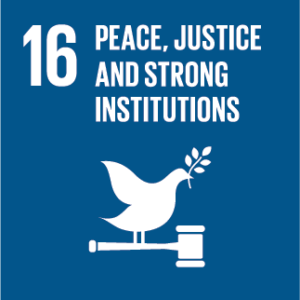

This “means of implementation” (MOI) target for SDG 16 includes various ways that governments and stakeholders can advance SDG16+ by strengthening institutions, capacities and international cooperation, including:
This MOI target also complements SDG targets 16.1, 16.4, and 16.6.
Interlinkages with other SDG targets
● 5.1 End gender discrimination
● 5.2 Eliminate women violence
● 5.3 Eliminate forced marriage
● 5.c Strengthen policies for gender equality
● 8.7 Stop child labour
● 10.3 Eliminate discrimination
● 16.10 Ensure access to information and protect fundamental freedoms
SDG Target 16.b – Promote and enforce non-discriminatory laws and policies for sustainable development
SDG Interlinkages:













This “means of implementation” (MOI) target ensures that SDG 16 rests on a human rights-based approach of nondiscrimination at all levels, including:
This MOI target also complements SDG targets 16.1, 16.6, 16.7, 16.9 and 16.10.
Interlinkages with other SDG targets
● 1.1 End extreme poverty
● 1.2 Halve national poverty
● 1.3 Implement social protection systems to the poor
● 1.4 Full access to basic services and economic resources
● 2.1 End hunger
● 2.2 End malnutrition
● 2.3 Double agriculture productivity
● 2.5 Maintain agricultural genetic diversity
● 3.7 Universal access to reproductive health care services
● 3.8 Universal health coverage
● 3.b Access to essential medicines
● 4.1 All for free primary and secondary education
● 4.2 Access to early childhood care and education for all
● 4.3 Access to technical and tertiary education for all
● 4.5 Eliminate gender disparities in all levels of education
● 4.6 All achieve literacy and numeracy
● 4.a Improve education facilities
● 4.b Expand scholarships for developing countries
● 5.1 End gender discrimination
● 5.4 Value unpaid domestic work
● 5.5 Enhance women’s participation in decision-making and public life
● 5.6 Universal access to reproductive health care services
● 5.a Women equal rights to economic resources
● 5.c Strengthen policies for gender equality
● 6.1 Universal access to safe drinking water
● 6.2 Universal access to sanitation and hygiene
● 6.b Strengthen local community participation in water management
● 7.1 Universal access to energy
● 8.3 Create decent work
● 8.5 Decent work for all
● 8.6 Improve youth employment
● 8.7 Stop child labour
● 8.8 Protect labour rights
● 8.10 Strengthen financial institutions
● 8.b Implement the ILO Global Jobs Pact
● 9.1 Develop resilient infrastructure
● 9.3 Increase access to financial services
● 9.a Enhance international aid to build resilient infrastructure
● 10.1 Income growth of bottom 40% population
● 10.2 Promote social, economic and political inclusion of all
● 10.3 Eliminate discrimination
● 10.4 Policy for greater equality
● 10.6 Inclusion of developing countries in global decision making
● 10.7 Improve equality of migrants
● 10.b Encourage ODA to LDCs
● 10.c Reduce the transaction costs of migrant remittances
● 11.1 Universal access to urban housing and basic services
● 11.2 Universal access to sustainable transport systems
● 11.7 Universal access to green and public spaces
● 11.a Strengthen development planning for sustainable cities
● 14.7 Increase the economic benefits of LDCs from sustainable use of marine resources
● 14.b Access to marine resources to small-scale artisanal fishers
● 15.6 Fair use of genetic resources
● 17.2 Implement ODA commitments
● 17.3 Mobilize financial resources for developing countries
● 17.7 Promote environmental technology transfer to developing countries
● 17.9 International support for sustainable development capacity building in developing countries
● 17.10 Promote equitable multilateral trading system under WTO
● 17.15 Respect each country’s policy space
Linkages with key international agreements
Transparency, Accountability &
Participation (TAP) Network
Address: 205 E 42nd St.
New York, NY 10017
Email:
secretariat@tapnetwork2030.org